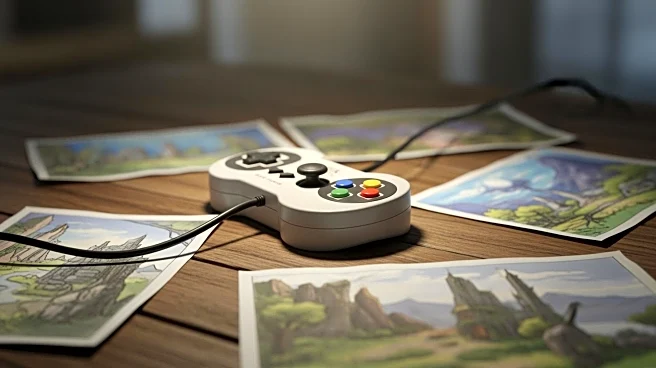What's Happening?
In recent years, the use of music therapy in medical settings has gained attention as a potential method to alleviate pain for patients undergoing surgery or dealing with chronic illness. At UC San Diego
Health, Nurse Rod Salaysay incorporates music into patient care, playing instruments like the guitar and ukulele to help manage pain post-surgery. This approach is part of a broader trend where live and recorded music is used in hospitals to reduce pain perception. Studies have shown that music can distract patients from pain, potentially lowering heart rates and blood pressure, and reducing the need for painkillers. The effectiveness of music therapy is linked to patients actively choosing and listening to their preferred music, which can enhance their ability to tolerate pain.
Why It's Important?
The integration of music therapy into healthcare settings represents a significant shift towards non-pharmacological pain management strategies. This approach could reduce reliance on pain medications, which often come with side effects and the risk of addiction. By offering a simple, cost-effective, and side-effect-free method of pain relief, music therapy could improve patient outcomes and satisfaction. The ability of music to engage multiple areas of the brain and provide emotional relief highlights its potential as a therapeutic tool. As healthcare systems seek to improve patient care and reduce costs, music therapy offers a promising complementary treatment option.
What's Next?
Further research is needed to understand the specific mechanisms by which music affects pain perception and to identify the most effective ways to implement music therapy in clinical settings. Studies may focus on determining which genres or types of music are most beneficial and how personalized music selections can be integrated into standard care protocols. As evidence grows, healthcare providers may increasingly adopt music therapy as a standard practice, potentially influencing policy changes and funding allocations for non-traditional therapies.
Beyond the Headlines
The use of music therapy also raises questions about the cultural and personal significance of music in healing. As patients choose their own music, the therapy becomes a personalized experience, offering a sense of control and agency in their treatment. This aspect of music therapy could foster a more holistic approach to healthcare, emphasizing the importance of mental and emotional well-being alongside physical health. Additionally, the growing interest in music therapy may inspire further exploration of other art-based therapies in medical settings.











